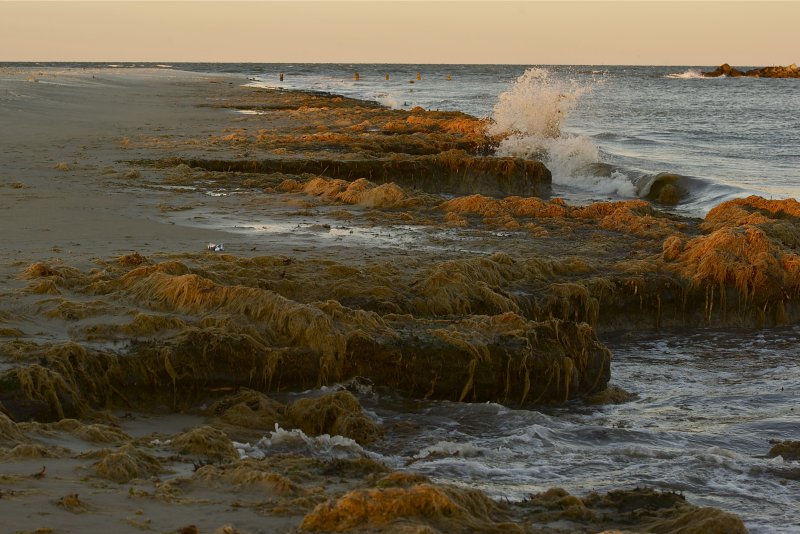
The lawsuit said the federal government failed to ensure Pennsylvania and New York implemented plans that lived up to an agreement to protect the Chesapeake Bay from pollution. File Photo by Bill Portlock/Chesapeake Bay Foundation
Sept. 10 (UPI) -- The attorneys general of three mid-Atlantic states and Washington, D.C., on Thursday sued the Environmental Protection Agency, accusing it of failing to protect the Chesapeake Bay.
Maryland Attorney General Brian Frosh said the EPA has failed to meet its obligations under an agreement to reduce pollution and restore local waters. Delaware and Virginia were also listed as plaintiffs in the lawsuit filed in the U.S. District Court for the District of Columbia.
"The Chesapeake Bay is a national treasure," Frosh said. "Restoring the health of the bay will take a coordinated, comprehensive effort by each of the watershed states. EPA has walked away from its responsibility to regulate and manage the efforts of the bay states. Today, we are asking the court to force EPA to do its job."
The Chesapeake Bay Foundation, a non-profit group devoted to protecting the region, concurrently filed its own lawsuit against the EPA in the same court. Anne Arundel County, Md., and the Maryland Watermen's Association were also listed as plaintiffs.
RELATED For small island nations, marine plastic cleanup is prohibitively expensive
The states' lawsuit accuses the EPA of failing to ensure Pennsylvania and New York implement plans to reduce pollutants that affect the bay's watershed. The attorneys general said the plans didn't meet goals outlined by the Chesapeake Bay Watershed Agreement, which was signed in 2014.
Neither plans cut down on the amount of nitrogen or phosphorus that enters the bay.
"This is the moment in time for the Chesapeake Bay. If EPA fails to hold Pennsylvania, and to a lesser extent New York, accountable the Chesapeake Clean Water Blueprint will be yet another in a series of failures for Bay restoration," said CBF President William C. Baker. "It doesn't have to be this way. Under the Blueprint we have seen progress. But unless pressure is brought to bear on Pennsylvania, we will never get to the finish line.
In response to the lawsuit, the EPA touted progress it said has been made in the watershed, including expanding underwater bay grass by 28,000 acres from 1984 to 2019.
"We have taken and will continue to take appropriate actions under our Clean Water Act authorities to improve Chesapeake Bay water quality," the agency said in a statement.
"In the past year alone, EPA and its federal partners have provided nearly a half billion dollars to support Bay watershed restoration activities, and EPA has delivered thousands of hours of technical assistance to the states, as well as comprehensive reviews of state implementation plans and progress forecasts to identify strengths and weaknesses. EPA's focus is on continuing to make unprecedented progress to restore the Chesapeake Bay and local waters."
No comments:
Post a Comment